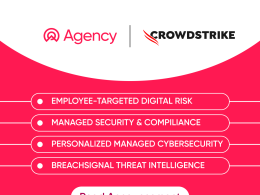A Bring Your Own Device (BYOD) policy in the workplace increases the risks of your business’ data being compromised. Many data breaches start with unauthorized access to an employee’s credentials. From there, hackers use that as a foothold to gain more and more access to information.
As a small business owner, how concerned should you be about the threat of cyber-attacks? In 2021, 43% of cyber attacks targeted small businesses. 60% of small businesses that fell victim to a cyber-attack did not survive and went out of business within six months.
Protecting your business, customers, and yourself from the disastrous consequences of a cyber attack using a cybersecurity solution is crucial.
5 Common Cyber Threats Small Businesses Face
1. Malware
Malware, or malicious software, is designed to damage devices and gain unauthorized access to information. If your employees are not diligent about their downloads and installations, they may unknowingly download malware. The consequences of malware may put your business in jeopardy.
2. Viruses
A computer virus is a piece of code that spreads from device to device and replicates itself. It changes the computer’s operation. Depending on the virus, this cyber attack may harm the device’s software and corrupt files and data.
3. Ransomware
A ransomware attack uses malicious software to prevent you from using your own devices until the hackers receive compensation — hence the word “ransom.” Paying the ransom could be costly for your business and risky. The hackers may not follow through with their promises or demand more money after the payment is sent.
4. Phishing
Phishing is a malicious attempt to gain personal or other valuable information by pretending to be a boss or a reputable company. Phishing usually comes in the form of an email. If you or your employees fail to recognize a phishing email, they may expose confidential information that risks your business.
5. Insider Threats
An insider threat is a cyber security risk that is initiated or aided purposefully by someone inside or affiliated with your business. A former employee, contractor, vendor, or partner can be responsible, and the consequences can be disastrous for the longevity of your small business.
Avoid Data Exposure Liability
Unfortunately, falling prey to these cyber attacks is not your only worry. Could your business handle data exposure liability?
Data exposure liability includes a breach of contract lawsuit, negligence lawsuit, regulatory enforcement, and associated liability. Depending on your business and the information compromised, your business could lose money and be responsible for legal fees.
Businesses must often notify victims about the data breach and the information leaked. Even if your business recovers financially, the damage to your reputation is done.
Free Resources To Protect Your Small Business
Multiple free cybersecurity tools help you shape your business’s cybersecurity needs.
- The Federal Communications Commission’s Custom Planning Guide
- The Department of Homeland Security’s Cyber Resilience Review (CRR)
- The Department of Homeland Security’s cyber hygiene vulnerability scanning
However, none of these are comprehensive and replace the efficiency of cybersecurity solutions that give you 24/7 monitoring and response to cybersecurity threats. Trust your business in the hands of cybersecurity experts that will protect your business and customers from cyber-attacks. Agency, a cybersecurity company, provides the best security for company-owned devices alongside revolutionary BYOD protection. There’s simple flat-rate pricing, no long-term contracts, and you can cancel anytime if you’re not satisfied.
Cybersecurity Habits That Large Businesses Practice and You Should Too
Employee Training
Educate your employees on common cybersecurity threats, how to secure devices, and what to expect from you and other employees. For example, tell your employees that you would never email them for personal information. Instead, you would communicate with them in person or over the phone.
Cybersecurity Solution
Purchase cybersecurity service from a company like Agency. Trusted by institutions like Disney and Harvard University, Agency protects your business while respecting your employees’ privacy. Agency is also the first cybersecurity company to provide over $500K of coverage if a cyber attack does occur.
Create a Mobile Device Action Plan
Agency puts users’ privacy first and only collects information vital to protecting the device and your business. Require your employees to password protect their gadgets, encrypt their data, and install security apps. Hiring a third-party service like Agency effectively eases employees’ privacy concerns.
Only “Need-To-Know” and “Need-To-Do” Access
Does every single employee of your business need access to the customers’ payment and personal information? Be conservative about access to information and limit the abilities of employee accounts. For example, limit some employees’ ability to download and install software if it does not interfere with their responsibilities.
Additional Cybersecurity Practices To Protect Your Small Business:
- Implement network security.
- Use strong and unique passwords for every device.
- Use multifactor authentication whenever possible.






